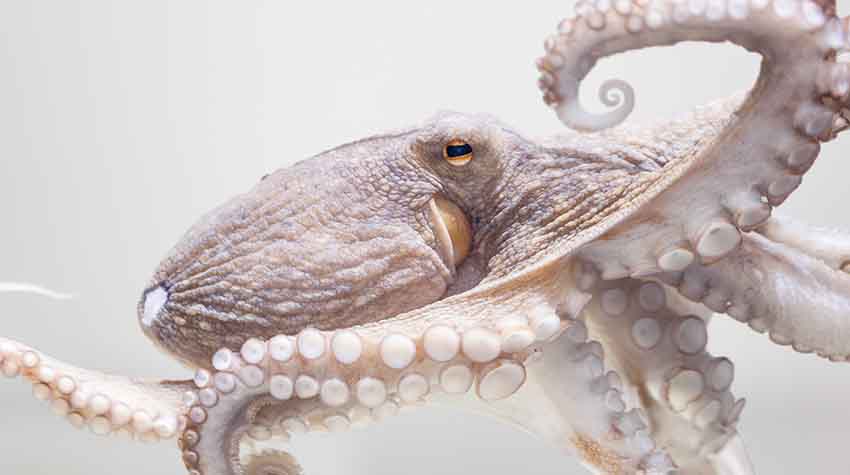
September 11, 2023Animal Law & Policy ClinicProgress in the Fight to Protect Cephalopods Used in Research in the U.S.
"Ensuring a modicum of federal oversight for these animals is a step in the right direction," says Rachel Mathews, Acting Clinic Director
The National Institutes of Health (NIH) has taken its first step toward closing the gap that allows researchers to experiment on cephalopods—including octopuses, squid, cuttlefish, and nautiluses—without any federal oversight.
In a Request for Information (RFI) released last week, the agency is proposing much-needed guidance to encourage researchers to minimize discomfort, distress, and pain caused to the cephalopods they use.
The proposal would direct research facilities to ensure that experiments on cephalopods are subject to review and approval by the facility’s Institutional Animal Care and Use Committee (IACUC)—the internal body responsible for oversight of such research—and would encourage research facilities to provide appropriate husbandry and veterinary care to these animals.
Without a doubt, this move was influenced by researchers, members of Congress, and animal advocacy organizations that have pushed the NIH to take action based on the growing acceptance that cephalopods are sentient and possess extraordinary intelligence.
“For far too long, federal policies governing animal research have ignored cephalopods despite their extraordinary sophistication,” says Rachel Mathews, Acting Director of Harvard’s Animal Law & Policy Clinic. “Just like any other animal, cephalopods suffer when they’re held captive and subjected to painful experiments. Ensuring a modicum of federal oversight for these animals is a step in the right direction.”
In 2020, Harvard’s Animal Law & Policy Clinic and a coalition of 15 organizations and experts petitioned the NIH to amend the definition of “animal” in its Public Health Service Policy on Humane Care and Use of Laboratory Animals to include cephalopods. In 2022, Harvard Law School’s Animal Law & Policy Clinicians also presented at a Congressional briefing hosted by the Physicians Committee for Responsible Medicine.
Update: Harvard’s Animal Law & Policy Clinic submitted a detailed written comment to the NIH in December. The comments were joined by eight other organizations and eight cephalopod experts, including many who signed the petition that the Clinic submitted to the NIH in 2020, and reiterated our call for the NIH to amend its policy governing the use of animals in research to include cephalopods. The comments also outlined ways to strengthen and expand the proposed guidance. Our clinicians Hallie Aylesworth (3L) and Jonathan Smith (2L) worked on the comments with Kelley McGill, alongside the Humane Society of the United States and the Humane Society Legislative Fund.
